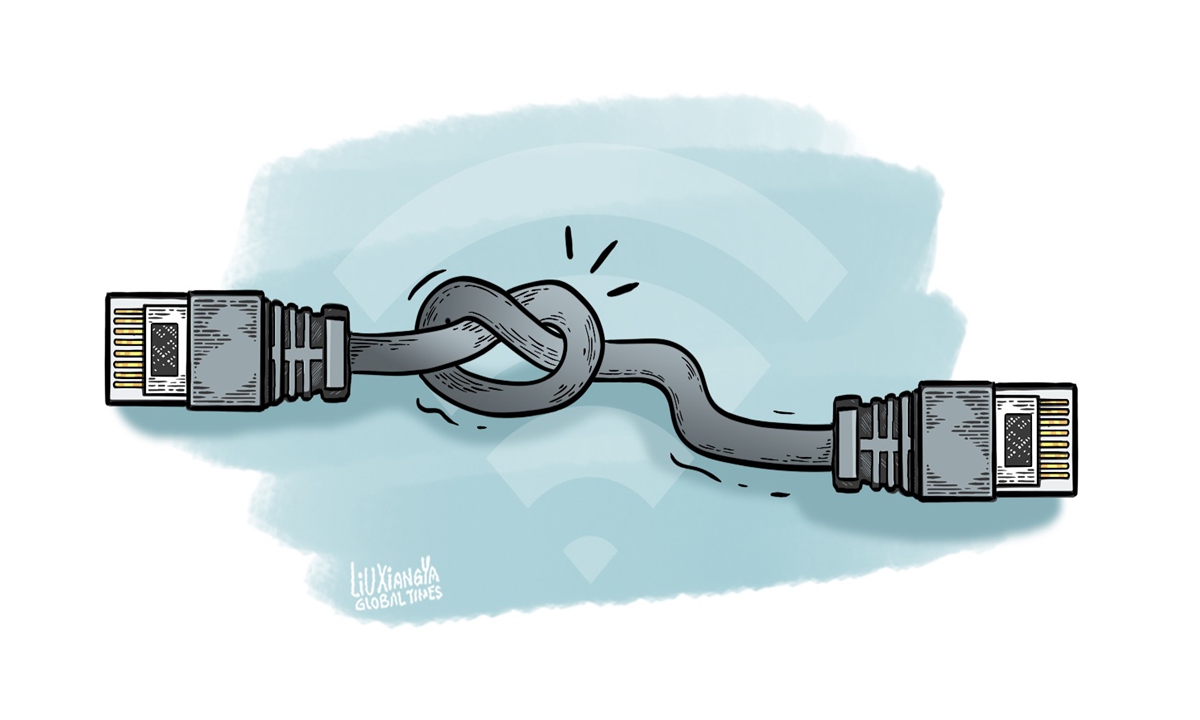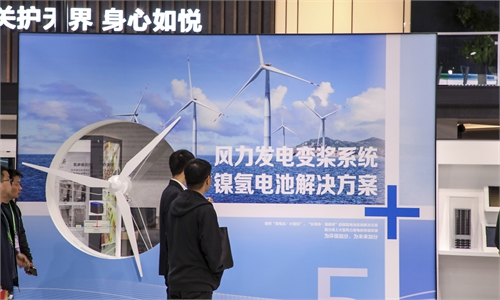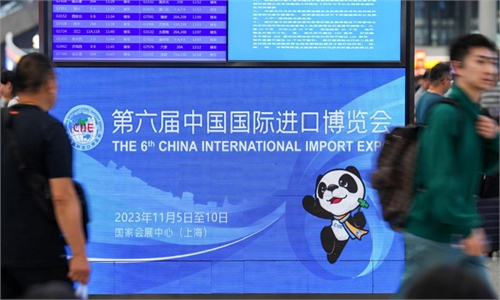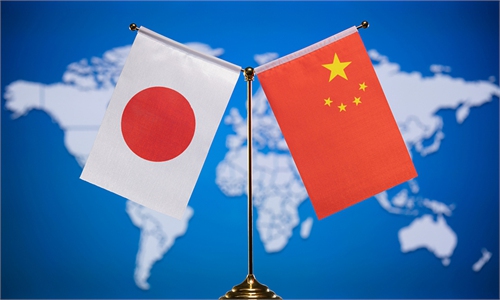Can Japan’s telecom technology thrive in US amid latter’s growing tide of protectionism?

Illustration: Liu Xiaya/GT
Japan is set to start a government-backed effort to promote light-based telecommunications technology to US tech giants, Nikkei Asia reported on Monday. However, if the report proves accurate, this ambitious effort may confront a range of challenges, even with Japan's technological advantages in the field.According to Nikkei Asia, Japan's Ministry of Internal Affairs and Communications plans to support the establishment of a demonstration facility in California's Silicon Valley, with companies like Nippon Telegraph and Telephone (NTT) and Fujitsu being potential participants. Japan has built a strong reputation for its expertise in light-based telecommunications technology, with its companies making notable progress in the development of the Innovative Optical & Wireless Network (IOWN). This cutting-edge framework integrates devices, networks and information processing infrastructure based on optical and other advanced technologies, enabling ultra-fast, high-capacity communications along with vast computing resources. However, this alone does not guarantee that Japan's light-based telecommunications technology will succeed in the US market.
The US telecommunications industry is grappling with several challenges, especially in light of growing protectionist sentiment. In recent years, the US government has imposed a series of restrictions on Chinese telecommunications giants like Huawei and ZTE, citing so-called "national security" concerns. These measures have disrupted the once-smooth, market-driven supply chains that connected the US with the rest of the world in the telecom sector.
The question of whether Japanese companies can seize the market share lost by Chinese telecom firms, as a result of US trade protectionism, is difficult to answer. At the core of the issue is the reality that the US measures, cloaked under the banner of so-called "national security," are primarily a form of trade protectionism aimed at safeguarding American telecom giants, rather than opening the market to competitors from other nations.
Both American and Chinese companies are major players in this market. According to data from data provider Omdia, as reported by Nikkei Asia, Huawei held the top share in 2023 with 29 percent, followed by US-based Ciena at 19 percent. In contrast, Japan's Fujitsu and NEC together accounted for just 5 percent. Expanding their footprint in this highly competitive global market would naturally require closer ties and more business with US tech giants - something that is understandable. However, against the backdrop of rising US trade protectionism, Japanese companies face significant challenges in competing with American firms and capturing more share in the US market. While some industry experts suggest that Japanese products may offer more competitive pricing than their American counterparts, this remains a considerable hurdle in an environment that is increasingly embracing protectionism.
US President Joe Biden recently blocked Japan's Nippon Steel from acquiring US Steel in a $14.9 billion deal, citing "national security" concerns and the need to protect critical supply chains. This move underscores a growing perception that the US is increasingly prioritizing the protection of its domestic industries, particularly key strategic sectors, over the interests of its international partners - even when it comes to close allies. For one economy, the importance of the telecommunications technology sector is always as critical as that of the steel industry. If some in Japan believe that the US might hand over market share - previously taken from Chinese companies under the guise of "national security" - by allowing Japanese firms to replace Chinese ones, that would be overly optimistic, if not naive.
While this does not imply that Japanese telecommunications and technology companies lack potential for growth in the US market, especially given their rapid technological advancements and other competitive strengths, the road ahead remains uncertain. These companies may not be entirely shielded from the growing tide of American protectionism. Although much of the protectionist sentiment has been directed at Chinese telecom giants, they might not be the only ones potentially affected. Other foreign competitors, including Japanese firms, might also find themselves navigating the complexities of a changing economic landscape, where rising nationalism seeks to prioritize US interests, sometimes at the expense of broader global trade.
Despite the impressive strides that some Japanese companies have made in technological innovation, fully capitalizing on the opportunities presented by US-pushed economic decoupling from China remains a significant challenge - particularly given the broader disruptions reshaping US industries. As one of the world's most influential markets, the US should recognize that only by moving away from protectionism can it foster genuinely fair competition, where the benefits of competition - such as cost reduction - are fully realized.
The author is a reporter with the Global Times. bizopinion@globaltimes.com.cn



